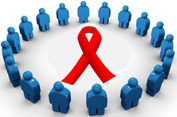The Effectiveness of Group-Therapy Intervention on Quality of Life and Hope of Women Infected with Human immunodeficiency virus
DOI:
https://doi.org/10.31661/gmj.v5i3.621Keywords:
Group Therapy, Quality of Life, Hope, Human immunodeficiency virusAbstract
Background: AIDS is one of the most important causes of death in the world and the affected patients, in addition to physical problems, experience various psychological problems, especially symptoms of depression such as hopelessness, isolation and social isolation. Therefore, the aim of this study was to determine the effectiveness of group-therapy intervention to improve quality of life and hope in women with HIV.
Materials and Methods: In this quasi-experimental study, pretest and post-test design with a control group was used. The sample size included 24 HIV-positive patients referring to Health Care Center of Mashhad city in 2014 that were randomly divided into 12 patients in the case group and 12 in the control group. For data analysis, multivariate analysis of covariance was used.
Results: The results showed that hope therapy interventions improved the quality of life of patients with HIV in two dimensions (cognitive and social). The interventions led to a significant increase in both navigational and operating dimensions of hope in the experimental group, compared with the control group.
Conclusion: Therefore, interventions with the protocol of hope therapy can improve quality of life and hope in patients with certain diseases. Regarding the efficacy of the intervention of hope therapy, it is suggested that this method be used as a procedure in AIDS counselling.
Keywords: Group Therapy, Quality Of Life, Hope, AIDS








